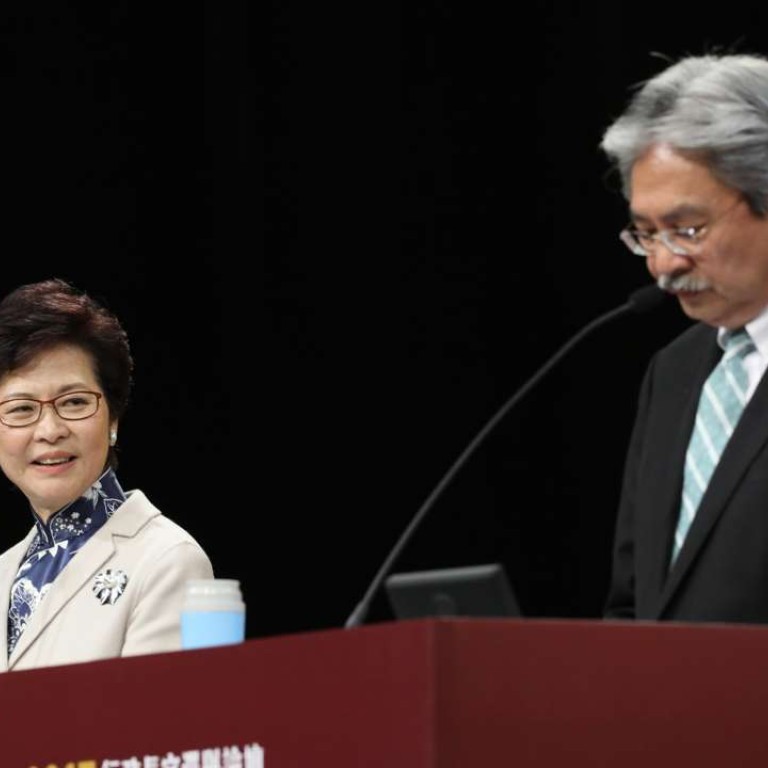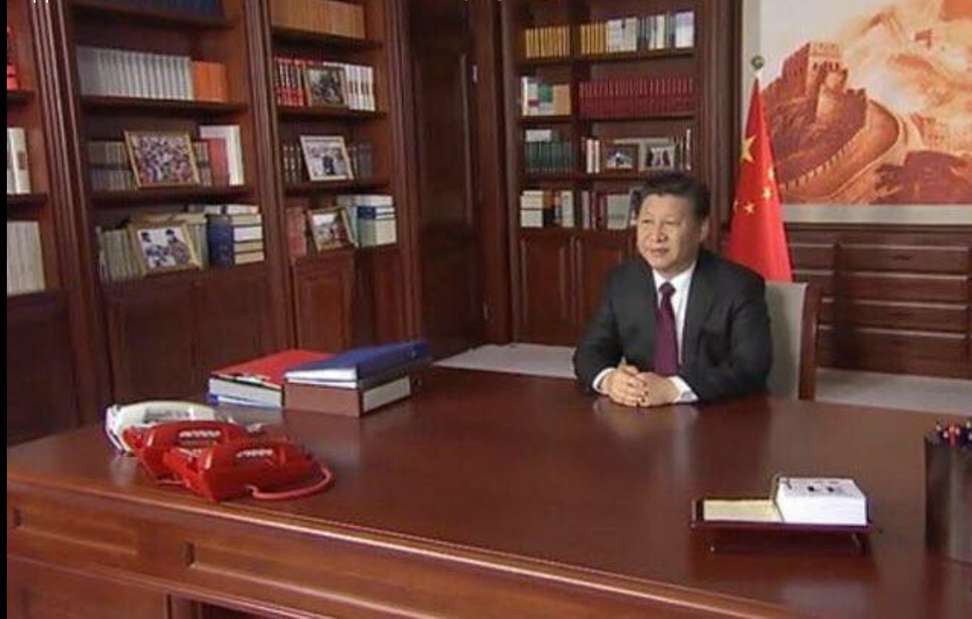
Carrie Lam faces social media backlash after final debate
After paper towel, “paperless office” takes toll on Carrie Lam
Carrie Lam Cheng Yuet-ngor may have scored points by ceasing her obsession with policy details in the final debate for the chief executive candidates, but the presumed front-runner soon attracted ridicule from netizens over her attempt to embarrass rival John Tsang Chun-wah.
Making a dig at the former financial secretary’s “paperless office” – an implication that he’d done minimal policy preparation – Lam attracted social media backlash that showed how little paper could be found on the working tables of global leaders like President Xi Jinping or Hong Kong’s richest man Li Ka-shing.
Pan-democratic Election Committee member Bruce Lui Ping-kuen shared a picture of Xi’s table – a spacious one with just two small trays, some telephones and a calendar, and cited what the president’s confidante had said about a clean desk.

“Party secretary Xi Jinping requests that we who do work have no piles of files on our desk, and not to leave any work overnight,” said Li Zhanshu, director of the party’s general office. “[Xi] does the same thing too.”
In the debate – the last before the March 26 election – Lam said: “John used to be my boss. When I went to his room for meetings, I saw that there were no files, no paper on his desk.
“I admired him very much. My desk was always full of files and documents,” she said.
Tsang retorted by saying that it was more important to work smart.
Lam’s remarkable PR gaffes included her tale that she couldn’t find paper towel in convenience stores after stepping down as chief secretary, having to return to her old official residence to seek help.
The gaffe aside, political observer Ivan Choy Chi-keung agreed that both Lam and Tsang improved from the Tuesday debate.
“Tsang appears much more confident than in the televised debate,” said Choy, a political scientist from the Chinese University.
Choy said Tsang was the best performer although Lam also made big progress.
“Lam has also learned to deliver her political message – that she is easy to work with and has been humbled by the election – instead of talking like a policy wonk as she did before,” Choy said.
Lam no longer attacked Tsang on a complicated government spending cut policy handled by Tsang.
But he said Lam gave a “very bad” answer on the question on her dealing with the students during Occupy Central in 2014.
Lam was asked to explain why her high-profile proposal of a communication platform with students and pan-democrats never materialised. However, Lam only said “but everyone knows what happened” after she made the pledge.
Choy said Lam could have pointed out it was the students who changed their minds.
Liberal Party leader Felix Chung Kwok-pan went as far as suggesting that Lam was the worst performing of the three.
“I think the two gentlemen did fairly well and [Lam’s] performance is a bit disappointing, probably because she was attacked by the two gentlemen,” he said.
Chung also said Lam’s defence of not inviting any senior administrative officers to join her campaigning team was contradictory.
In the debate, Lam said she did not invite any administrative officers in a bid to avoid splitting the group of friends who held regular dinners, also attended by Tsang.
“If you cannot take care of a table of people, how could you take care of Hong Kong?” he said. “This is very contradicting.”



